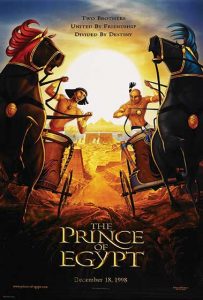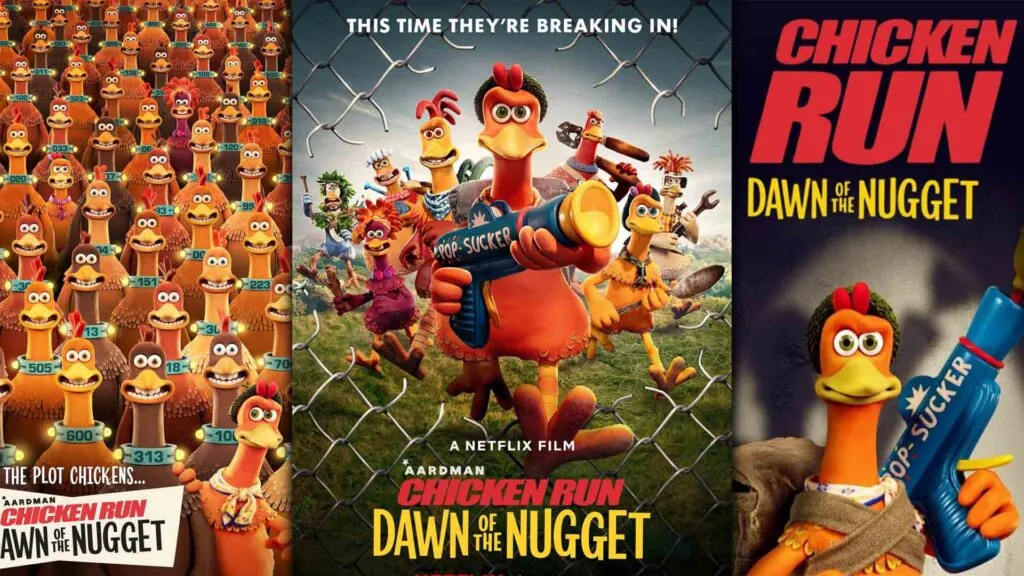Most “family friendly” films are precarious
****
Recent research indicates that our brains are more synaptically active while we sleep than they are while we watch television or movies. This is not just a physical reality, but a spiritual one. Most people, including an alarming number of Christians, watch movies strictly for enjoyment, with a passive and receptive mental stance. But Christians should not view movies this way, and if they can’t watch movies any other way, they shouldn’t watch movies at all.
The Proverbs tell us: “Doing wickedness is like sport to a fool, and so is wisdom to a man of understanding” (Prov. 10:23). In other words, vanity, futility, and immorality are fun to a fool. These alone please him.
A wise man, on the other hand, finds pleasure and satisfaction in the exercise of wisdom and discernment. If a movie is little more than eye-candy – an exercise in superficiality and sensual experience – it won’t do very much to please a wise man. He wants something to chew on, some way to exercise and practice his discernment, some avenue to make a distinction between excellence and mediocrity, right and wrong. Mature Christians “because of practice have their senses trained to discern good and evil” (Heb. 5:14). A thoughtful, well-produced movie can be and should be another playground for the pleasurable practice of biblical discernment.
Between right and almost right
As is apparent to most human beings, some family pets, and even some household appliances, one can either watch a given movie, or not watch it. Not watching a movie is the easiest way to avoid being affected by it. When a movie sells itself with sex, violence, and coarse language, it is almost always a good choice to skip it. Judging a movie by its poster, preview, and rating is the easiest form of discernment, and for me at least, it shaves off about 90% of all contemporary movies right off the bat without any further inquiry.
But, as Charles Spurgeon has said, “Discernment is not a matter of simply telling the difference between right and wrong; rather, it is telling the difference between right and almost right.” It seems that most Christians, if they use discernment at the box office at all, discern only according to appearances. If a movie contains little coarse language, no nudity, and no exorbitant violence, they consider the movie harmless family entertainment. Well-dressed, sweet-smelling lies are harder to detect than stinky, ugly ones. For this reason, Satan disguises himself as an angel of light, and we should not be surprised when his servants come to us in equally deceptive garb (2 Cor. 11:14-15).
We must learn to exercise a discernment which looks at the heart of a matter. God exercises this kind of discernment perfectly, and we also can “spiritually appraise” all things because we have the mind of Christ (1 Corinthians 2:15-16). It is clear we must avoid supporting movies that display a penchant for sin and all that the flesh lusts after, but what about those “family-friendly” films that seem so harmless? How do we avoid the pitfalls of worldview deception when something seems “almost right”?
“Imitation value extracts”
 I think the most dangerous feature of mainstream family-friendly films is the ubiquitous inclusion of what I call “imitation value extracts.” These are virtues or convictions that have been extracted from their context. They are ready-made virtues.
I think the most dangerous feature of mainstream family-friendly films is the ubiquitous inclusion of what I call “imitation value extracts.” These are virtues or convictions that have been extracted from their context. They are ready-made virtues.
It is easy to account (or should I say bank account) for their existence. Hollywood producers want to make as much money as possible from their films, naturally. In order to do this, they have to attract as many viewers as possible. This means it is important for them to neutralize any elements in their movies that might unduly offend any potential market. Thus, “value extracts” allow any number of viewers with vastly different substantive beliefs to pour their own definitions, sources, and foundations into the generalized, non-exclusive frameworks of any given film.
Allow me a detour for a moment to talk about an interesting Biblical backdrop for this discussion. The word translated “medium” in the Old Testament (meaning necromancer or sorcerer) is the Hebrew word “ob” which means “empty wine skin.” This means that the mediums emptied themselves out so that they could be filled with any passing spirit.
In the same way, Hollywood has embraced a stance of tolerant pluralism, emptying itself of any divisive or exclusive convictions so as to be open to the opinions (and especially, the money) of any passing viewer. Let’s look at a few examples of objectless, foundationless “value extracts” in some “classic” family films.
Prince of Egypt
Consider the movie Prince of Egypt, Dreamworks Animation’s first film, which is loosely based on the Biblical account of Moses. The theme song for the film is entitled “When You Believe.” The chorus to this song is:
There can be miracles, when you believe
Though hope is frail, it’s hard to kill
Who knows what miracles you can achieve
When you believe, somehow you will
You will when you believe…
 This is a great example of extracted values. Here, the faith and hope have no object. Their value is intrinsic. The focus is on the individual’s act of belief, not on the object of his belief. You can achieve miracles if you believe, even if what you believe in doesn’t exist, there is power in the act of belief. Belief is its own reward. It doesn’t matter what or who you believe in, just that you believe. The belief itself is what is valuable about religion because it gives you the strength to carry on through difficult times.
This is a great example of extracted values. Here, the faith and hope have no object. Their value is intrinsic. The focus is on the individual’s act of belief, not on the object of his belief. You can achieve miracles if you believe, even if what you believe in doesn’t exist, there is power in the act of belief. Belief is its own reward. It doesn’t matter what or who you believe in, just that you believe. The belief itself is what is valuable about religion because it gives you the strength to carry on through difficult times.
I wish this were the only example of “imitation faith extract.” But it isn’t. Here are a few more examples.
The Voyage of the Dawn Treader
The first song for the ending credits of The Voyage of the Dawn Treader contains these lines:
We can be the kings and queens of anything if we believe.
It’s written in the stars that shine above,
A world where you and I belong,
where faith and love will keep us strong,
Exactly who we are is just enough.
In these lines, we see both faith and love operating as value extracts – totally separated from any object. This would be bad enough, but consider this testimony from Liam Neeson, who has played Aslan in all the Narnia movies so far:
“Aslan symbolizes a Christ-like figure but he also symbolizes for me Mohammed, Buddha, and all the great spiritual leaders and prophets over the centuries. That’s who Aslan stands for as well as a mentor figure for kids – that’s what he means for me.”
Hmmm. So the movie has been designed so that any religious belief can fit into its framework. It has been stripped of political incorrectness by removing or primarily neutralizing Christian truths that would exclude other beliefs. Notice again the emphasis on self. In fact, if mainstream “family” movies give any object for faith, it is always the self. How many times have you heard the platitude: “You’ve just gotta believe in yourself.” Something in me thinks that C.S. Lewis would not be terribly happy about the marketizing neutralization of his specifically and obviously Christian stories, but I guess there is no way to know until we get to “somewhere in the stars where you and I belong” and then, we can ask him.
The Polar Express
Another example is The Polar Express. In it, the train conductor says, “The thing about trains… it doesn’t matter where they’re going. What matters is deciding to get on.” Later, the protagonist chants, “I believe. I believe. I believe.” According to the conductor, the direction, destination, source, or foundation of belief – I mean trains – is not important. So the boy just has to “believe.” Whatever he believes in is unimportant. As long as he decides to believe, that is what is important.
Or how about Cinderella: “If you keep believing, the dreams you wish will come true.”
Or even Kung Fu Panda: “Promise me, XiFu! Promise me you will believe!”
Once you start to notice this sort of thing, the examples are really endless. “Value Extracts” are the moral backbone of almost all family films. Love very commonly operates as a value extract – without boundaries, without object, without foundation. The “power of love.” Courage, loyalty, and honesty also appear regularly, and without a foundation. Whatever the value, it must be presented in a nebulous enough way to receive any viewer’s particular definitions. Hollywood provides the empty wineskin, you provide the passing spirit.
Barely even half-truths
Value extracts are dangerous deceptions – barely even half-truths. Virtue does not exist without Christ. Nothing has intrinsic value apart from Him. Faith without an object is useless. Love without definition is as good as hate. Courage, loyalty, honesty, etc. are arbitrary without biblical boundaries. Good and evil do not exist without an absolute standard to distinguish them. To ascribe intrinsic or independent value to anything is to say, in effect, that things can have existence and goodness independent of God.
Non-Christians wish this were the case because they want the fruit of Christianity without having to bow the knee to Christ. But Ecclesiastes makes it very clear: under the sun (i.e., excluding the heavens where God is), everything is intrinsically meaningless and vain.
So, these seemingly safe family movies may appear to be harmless family fun, but they are actually denying the root of all meaningful existence – God and His Word.
As such, most “family friendly” films are precarious, and should not be viewed passively.
It is profitable to watch these movies, even with your children, only if you couch the movie-watching experience as an active sparring session… a module of worldview conflict training. Without this self-conscious predisposition to “guarding our hearts,” we will leave ourselves vulnerable to the onslaughts of vain speculation and worldly philosophy. Watching movies and engaging with the philosophy of our culture must never be a passive experience, for to allow it to be such would be to sit under the tutelage and in the friendly company of scoffers. We cannot be deceived, such an approach has corrupted and will continue to corrupt Christian morals. The enjoyment we receive from movies must be the sport of exercising our Biblical discernment, not the passive and passing pleasure of folly (thinking again like Prov. 10:23).
So, next time you go to the movies, don’t leave your mind at the box office or your heart unguarded. Prepare yourself for the invigorating exercise of your discernment. Then, take the strength and understanding you gain from that exercise and use it to engage your culture for the kingdom of Christ!
This article is reprinted with permission from the author, and was first posted to Movieology.tv a now defunct website that offered challenging and highly enlightening movie reviews, from a biblical, Reformed worldview. Michael Minkoff Jr. is the cofounder of The Nehemiah Foundation for Cultural Renewal and Renew the Arts (RenewTheArts.org).












